Lynch syndrome: Managing the risk of hereditary colon cancer
Lynch syndrome is a gene mutation that increases colon cancer risk. Learn how Kaiser Permanente helped Karen Betzler manage her risk through coordinated care.
Karen Betzler was grateful for the convenience and timeliness of receiving care within Kaiser Permanente’s connected system.
Karen Betzler shares a lot with her brothers and sisters. All 6 have hazel eyes and freckles, and a love of swimming and board games.
Four years ago, she learned that 5 of the 6 siblings have something else in common: an inherited condition called Lynch syndrome.
What is Lynch syndrome?
Lynch syndrome is an inherited disorder caused by changes in certain genes. People with Lynch syndrome are at high risk of developing colorectal cancer, often before the age of 50. They are also at risk of developing other cancers.
“The genes involved in Lynch syndrome are ‘mismatch repair genes,’” explained Laura Kellogg, a genetic counselor at Kaiser Permanente. “Their job is to fix damage that occurs to your genetic material, or DNA. If the Lynch genes aren’t working, then you can accumulate damage, and that damage can lead to cancer.”
Preventive screening
“I was shocked to learn I had Lynch syndrome,” said Betzler, who recently retired from her job as a sonographer at the Kaiser Permanente Sacramento Medical Center.
But the bad news came with a silver lining. Betzler was referred to Kellogg for genetic counseling. She also began receiving annual colonoscopies to check her colon and rectum for any signs of cancer. She receives an endoscopy every 2 years to check for cancer in her stomach and esophagus.
Women with Lynch syndrome may also need regular screenings for reproductive cancers. Betzler does not because she has had a hysterectomy.
Know your risk
Risk factors for Lynch syndrome include having:
- Colorectal cancer before the age of 55 or uterine cancer before menopause
- 2 or more colorectal or other Lynch-related cancers
- More than one relative on one side of the family with colorectal or uterine cancers
- A relative with Lynch syndrome
In Betzler’s case, her sister had been diagnosed with Lynch syndrome after learning she had colon cancer. “We tested Karen for the same gene mutation, and the results were positive,” Kellogg said.
A better care experience
Betzler appreciated the convenience of receiving care within Kaiser Permanente’s connected system.
“There was no delay in having any of the testing done. Whether it was a blood test or a colonoscopy, everything happens right here,” she said.
The option of using telehealth for some appointments was another timesaver. “I didn’t have to take extra time out of my day to get to the doctor’s office,” she said.
Using knowledge to manage risk
Kellogg credits Kaiser Permanente’s team approach with ensuring the best care for patients like Betzler. Multidisciplinary review boards of cancer specialists meet regularly to discuss complex cases.
“That allows us to make informed decisions,” she said.
If you think you may have an inherited predisposition for cancer, be sure to tell your doctor.
“Having that information allows you to be more proactive,” said Kellogg. “You can take concrete steps to manage your risk.”
Learn more about cancer care at Kaiser Permanente.
-
Social Share
- Share Lynch Syndrome: Managing the Risk of Hereditary Colon Cancer on Pinterest
- Share Lynch Syndrome: Managing the Risk of Hereditary Colon Cancer on Linkedin
- Share Lynch Syndrome: Managing the Risk of Hereditary Colon Cancer on Twitter
- Share Lynch Syndrome: Managing the Risk of Hereditary Colon Cancer on Facebook
- Print Lynch Syndrome: Managing the Risk of Hereditary Colon Cancer
- Email Lynch Syndrome: Managing the Risk of Hereditary Colon Cancer
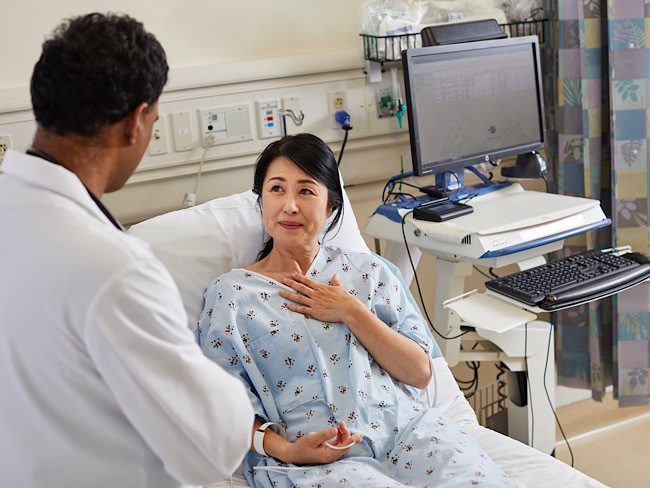
April 23, 2024
We’re rising up to help prevent falls
Kaiser Permanente is committed to finding ways to help reduce falls in …

April 17, 2024
5 common health conditions men don’t like to talk about
Some of the most common conditions affecting men carry a social stigma …

April 10, 2024
For a new mom, talking about her worries helped her heal
One in 5 people experience depression, anxiety, or other mental health …

April 9, 2024
Denver Fire Department annual blood work screenings triple
It’s easy to put off recommended health screenings, and sometimes even …

April 9, 2024
Building partnerships to inspire the next generation
Kaiser Permanente supports education and career opportunities for students …

April 8, 2024
Reducing inequity with fruits and vegetables
Black Americans experience worse health outcomes compared to other populations …

March 29, 2024
Faster recovery: From cardiac scare to exploring Italy
Virtual cardiac rehab helped Mike Kelly heal at home after a life-threatening …

March 20, 2024
Life after cancer: Surviving and thriving
A healthy life after cancer is possible. Learn how Kaiser Permanente helps …

March 18, 2024
Program helps member prioritize her health
Medical Financial Assistance program supports access to health care.

March 14, 2024
Healthy kidneys support overall good health
Kaiser Permanente excels in preventing, detecting, and treating kidney …

March 14, 2024
Midwife offers personal care for mom facing complications
For Sam Beeson, having a midwife at her side during her pregnancy helped …

March 13, 2024
A call to 'Connect' to uncover the causes of cancer
Learn more about a study to help prevent cancer.
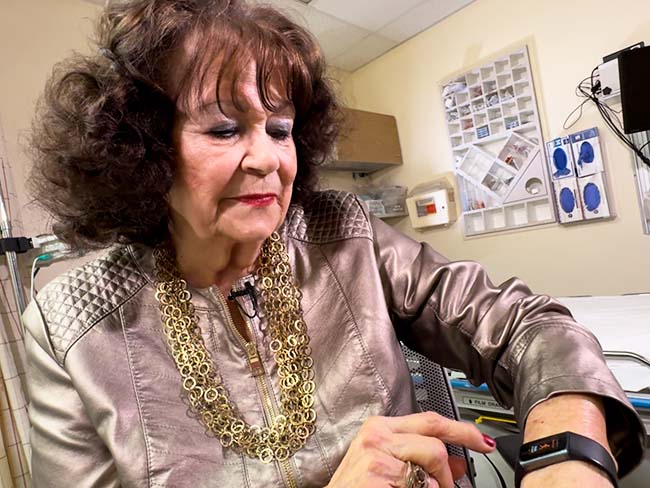
March 12, 2024
In-home recovery restores harmony to life
Colorado musician back with the band thanks to new virtual cardiac rehab …

March 6, 2024
Joining a national effort to test new ways to find cancer
As part of the Cancer Screening Research Network, our researchers will …

March 6, 2024
Are you dreading the spring season?
A new Kaiser Permanente facility in Bellflower, California, makes customized …
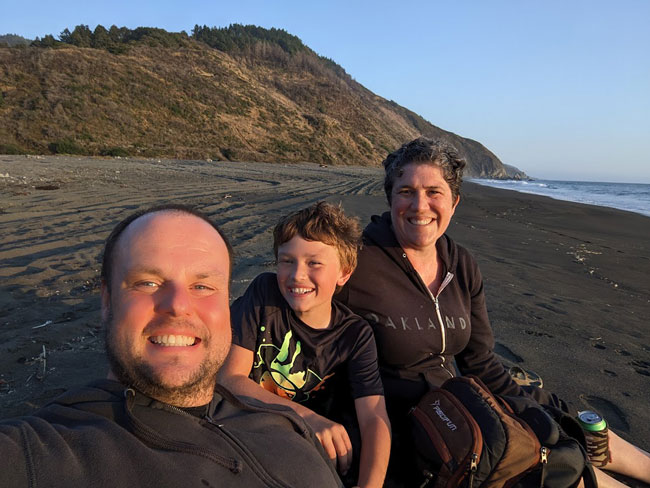
March 6, 2024
Colon cancer screening: She’s glad she didn’t wait
A timely preventive test reveals Rebecca Kucera has cancer. Swift treatment …

March 5, 2024
Researchers look for ways to find pancreatic cancer early
Early detection of the disease, before it becomes advanced, will increase …

February 26, 2024
What you need to know about colon cancer screenings
Screening for colorectal cancer is recommended for most people starting …

February 22, 2024
The journey of a lifetime
Care teams at Kaiser Permanente Fontana Medical Center helped Phillip Crawford …

February 21, 2024
From planning his funeral to celebrating his wedding
Gabriel Abarca had no hope for his future. Then the team at Kaiser Permanente …

February 21, 2024
Recovering at home after a double mastectomy
Innovative surgical recovery program helps breast cancer patients safely …

February 8, 2024
Road to heart health: Living well
You have only one heart. ‘Prescribe’ yourself a few changes to help protect …

February 1, 2024
Road to heart health: Know your risk factors
One of the best ways to prevent future heart conditions is knowing what …

January 31, 2024
Prioritizing policies for health and well-being in Colorado
CityHealth’s 2023 Annual Policy Assessment awards cities for their policies …

January 26, 2024
Retiree back in the swing of things after heart procedure
Tookie Gentilcore returns to enjoying life thanks to a quick, safe method …

January 24, 2024
A full-circle journey for one cancer survivor
Grateful for compassionate and successful Hodgkin lymphoma treatment at …

January 17, 2024
How diabetes can affect your heart
People with diabetes are more likely to have heart disease.

January 17, 2024
International recognition affirms our superior care
The Kaiser Permanente South Sacramento Medical Center becomes our 11th …

January 10, 2024
‘You don’t know unless you ask them’
Kaiser Permanente’s Patient Advisory Councils help us create exceptional …

December 26, 2023
How to prevent cervical cancer
Cervical cancer is highly preventable. Learn how HPV vaccination and regular …
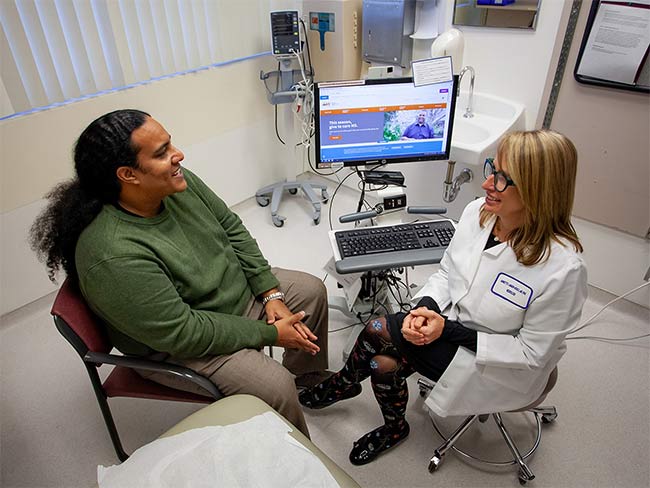
December 20, 2023
Research transforms care for people with multiple sclerosis
Our researchers are leading the way to more effective, affordable, and …

December 19, 2023
Determined to drop the weight and stop the cycle of diabetes
Following a COVID-19-related hospital stay, Robert DeLeon took charge of …
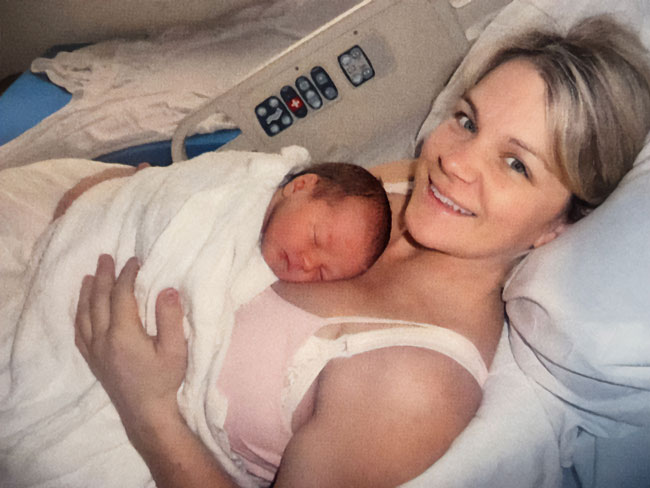
December 15, 2023
Family-centered care, through pregnancy and beyond
Members experiencing a low risk pregnancy have the option of having their …

December 13, 2023
Nurse navigators guide patients from diagnosis to treatment
An unexpected cancer diagnosis left Jennifer Martin unsure of the next …

December 13, 2023
Our California health plans honored with top ratings
Kaiser Permanente receives 5 out of 5 stars for overall quality of care …
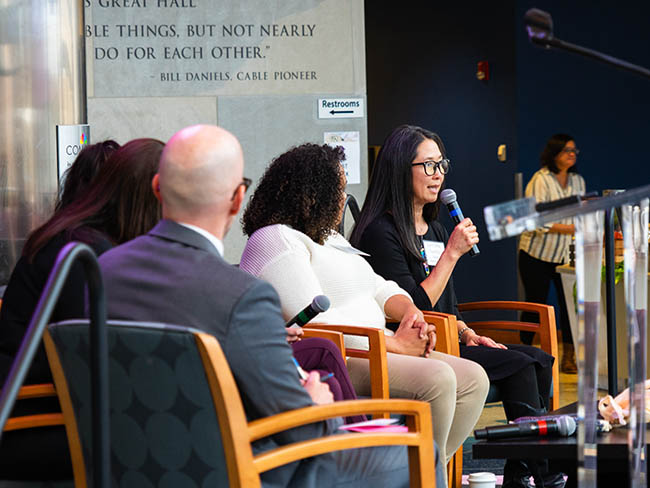
December 12, 2023
Hundreds attend first Food Is Medicine Summit
Attendees look at ways to get healthy food to people who don’t have enough …

December 6, 2023
Leading research with gratitude
Learn how you can participate in a study to uncover what causes cancer …

December 6, 2023
Video prenatal visits are a boon for a busy working mom
A new care option offers a mix of in-person and virtual visits, supported …

December 1, 2023
Surviving — and thriving — after cancer
From diagnosis to recovery, David Parsons, MD, shares how screening, treatment …

November 21, 2023
Surviving lung cancer as a nonsmoker
As a lifelong nonsmoker, Mariann Stephens was shocked to learn she had …
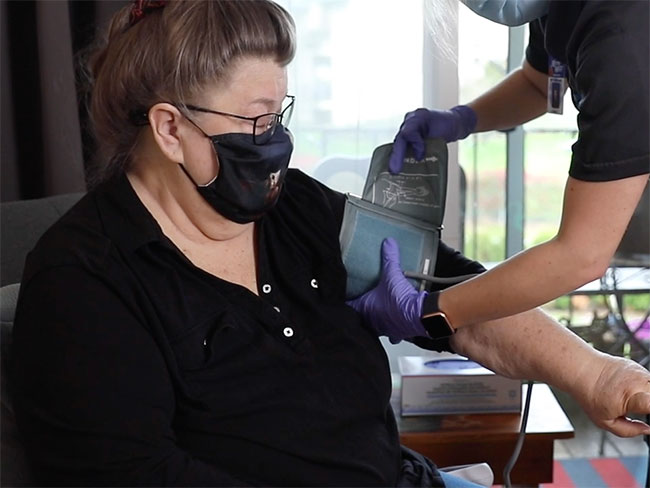
November 15, 2023
Care at home: Giving patients what they want
Our Advanced Care at Home program provides high-quality, safe care in familiar …

October 25, 2023
Breast cancer during pregnancy: Caring for mom and baby
A team of specialists treats an expecting mother’s cancer while keeping …

October 24, 2023
Childhood anxiety: What parents need to know
A child and adolescent psychiatrist shares tips on supporting your child …

October 23, 2023
A renewed sense of purpose after surviving breast cancer
Joy Short, a Kaiser Permanente member and employee, turned her breast cancer …

October 11, 2023
Early breast cancer detection improves quality of life
For 75-year-old Peggy Dickston, a surprise diagnosis was caught early thanks …

October 3, 2023
Nursing excellence recognized at Fontana Medical Center
The prestigious Magnet® designation affirms the compassion, dedication, …

September 29, 2023
2022 in review: A focus on equity, quality, and community
Our annual report shows how our dedicated employees and physicians provided …

September 20, 2023
Ultramarathoner back on track after cardiac surgery
Fit and focused, an Oregon father and runner rebounds after an aortic valve …

September 20, 2023
Healing after a heart attack
For years, serious heart attacks meant hours of weekly appointments. Now, …

September 19, 2023
Is telehealth right for you?
Members give video visits high marks — and with a few simple tips, you …

September 18, 2023
Highest-rated everywhere we serve
Our health plans are again rated among the nation’s best for overall treatment …
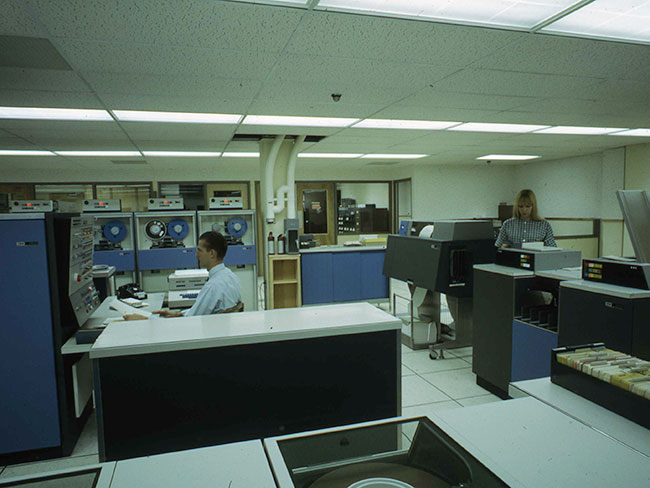
September 13, 2023
Transforming the medical record
Kaiser Permanente’s adoption of disruptive technology in the 1970s sparked …
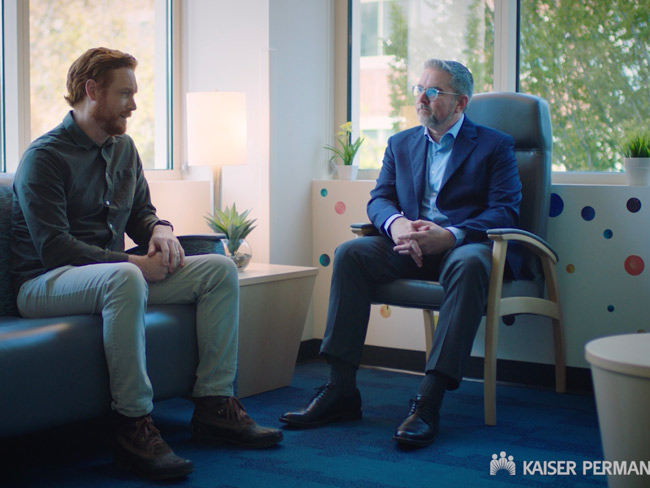
September 6, 2023
Recovery from addiction is possible
Our clinicians help patients get the care they need to move forward with …

August 17, 2023
Beyond clinic walls: Research supporting healthy communities
Stories in the Department of Research & Evaluation 2022 Annual Report demonstr …

August 17, 2023
Cancer research: The role of immunotherapy
Research and clinical trials play a vital role in advancing cancer treatment …

August 16, 2023
Cervical cancer screening: Exploring the at-home HPV test
Kaiser Permanente is at the forefront of cervical cancer research. Find …
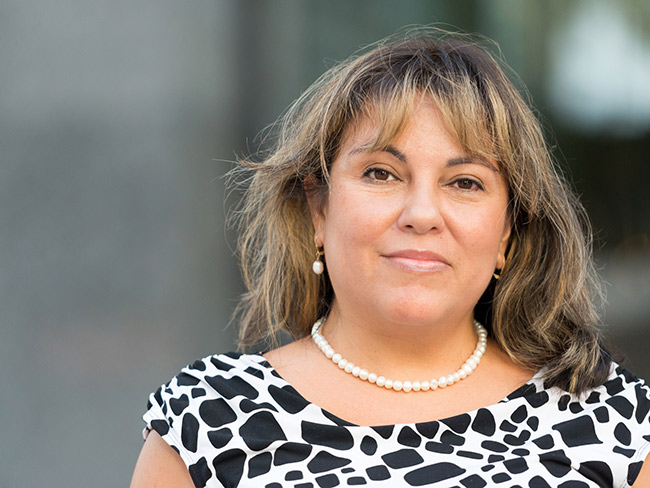
August 15, 2023
Screening for breast cancer: Mammogram guidelines
Mammograms can help detect breast cancer early, when it’s easier to treat. …

August 14, 2023
Tips for ensuring a safe and healthy college experience
Students should study up on their care options to ace their school experience. …

August 14, 2023
Marla’s story: Surviving acute promyelocytic leukemia
After a diagnosis for a rare type of blood cancer, Marla Marriott got high-qua …

August 10, 2023
Highlighting our community health work in Southern California
The Kaiser Permanente Southern California 2022 Community Health Snapshot …

August 8, 2023
Genetic testing and customized cancer care
Harold Newman had advanced prostate cancer. Genetic testing helped expand …
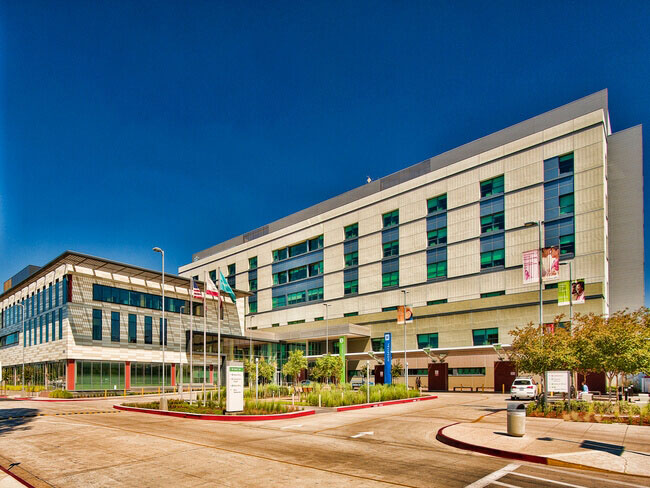
August 8, 2023
Nursing excellence: Joining the elite 10% in the nation
Kaiser Permanente Panorama City Medical Center achieves coveted Magnet® …

August 4, 2023
Eating well and adopting healthy habits helps prevent cancer
Learn how lifestyle medicine is part of cancer care at Kaiser Permanente.
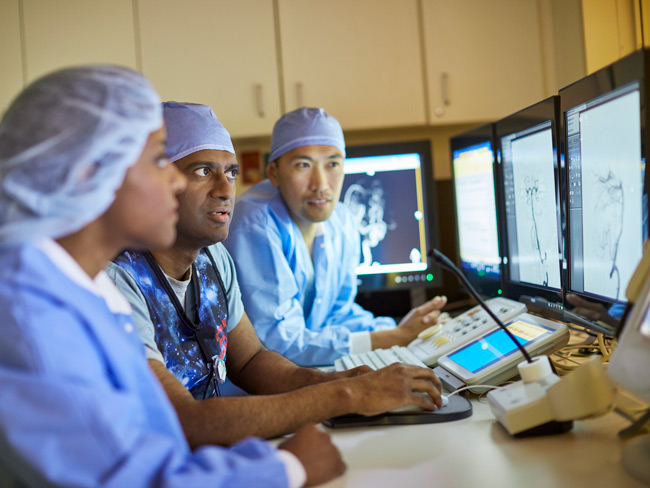
August 3, 2023
All our hospitals rated among nation’s best
For the third year in a row, every Kaiser Permanente hospital earned ‘high …

July 27, 2023
Courageously facing hereditary breast cancer
Fay Gordon's breast cancer was caught in the early stages thanks to genetic …
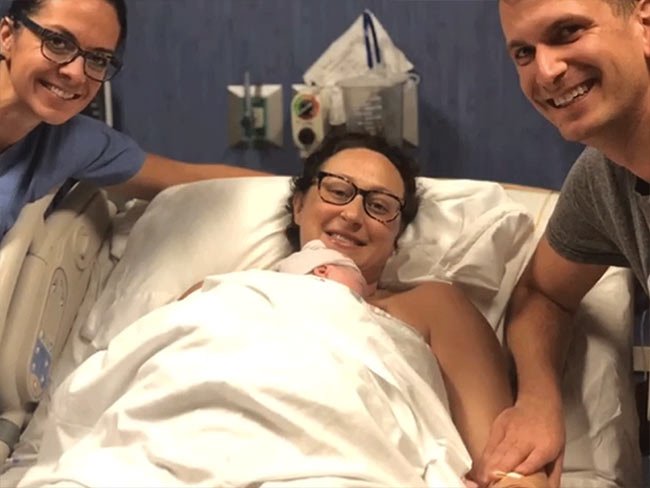
July 26, 2023
Can you get chemotherapy while pregnant?
Chemotherapy can be an option during pregnancy. Find out how Kaiser Permanente …

July 25, 2023
5 breastfeeding myths debunked
Tarayn Fairlie, MD, a pediatrician and lactation consultant, helps separate …

July 21, 2023
Thankful for every day after HPV-related cancer diagnosis
Michael West shares his incredible journey from diagnosis to treatment …

July 14, 2023
Breast reconstruction surgery after cancer
A Kaiser Permanente plastic surgeon explains breast reconstruction options …
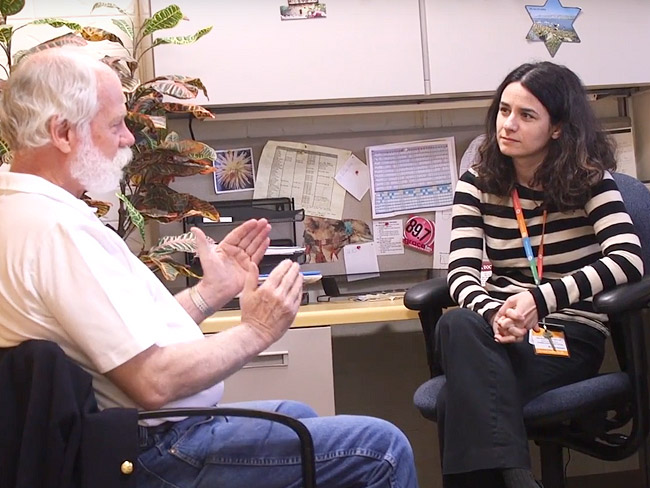
July 11, 2023
Cancer care for the body, mind, and spirit
Many people with cancer experience depression and anxiety. Mental health …

July 11, 2023
We deliver excellence for parents and babies
Our members are more likely to feed their babies breast milk. And they’re …

July 10, 2023
Beating colon cancer together: Miguel and Paula’s story
After they were both diagnosed with colon cancer, Miguel and Paula fought …

July 7, 2023
‘I am not the face of a heart attack’
Linda Tapia lives a healthy, active life, so she was stunned to be diagnosed …

July 3, 2023
A compassionate approach is saving lives and rebuilding hope
Kaiser Permanente Los Angeles Medical Center’s Bridge Program has become …

June 30, 2023
Doctors' top tips to manage prostate cancer risk factors
Age, family history, and race are key factors.
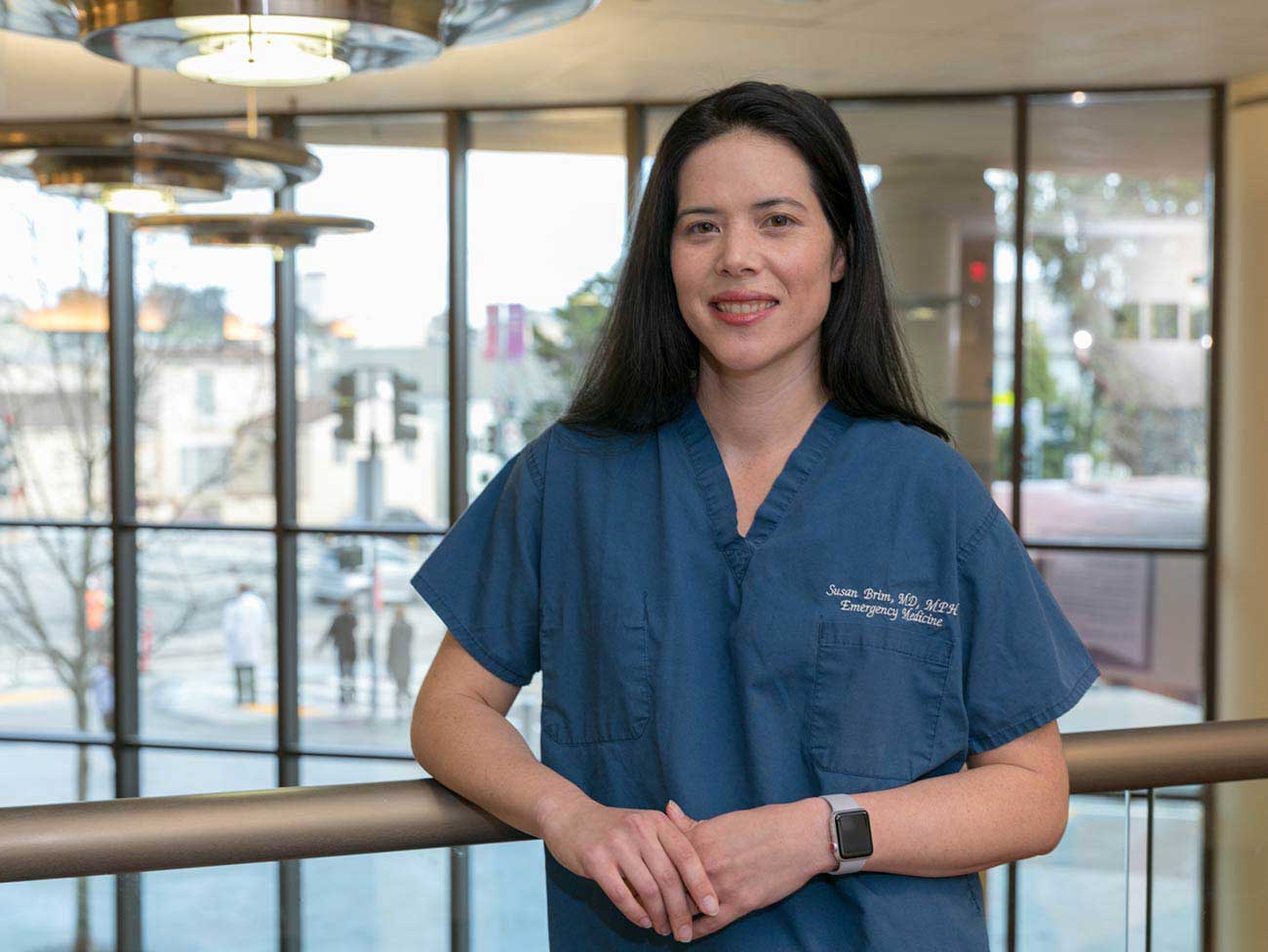
June 30, 2023
Lung cancer survivor received ‘pioneering’ care
Doctor and mother of 3 Susan Brim received top-notch care after her lung …

June 27, 2023
Men: It’s time to prioritize preventive care
It’s important to be proactive about your health by scheduling regular …
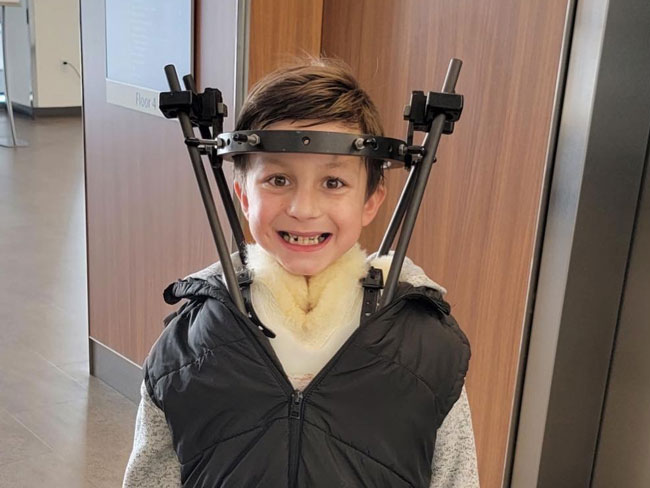
June 27, 2023
Comforting, personalized care for a kiddo with cancer
Carter Shaver from Portland, Oregon, shares his optimistic smile after …
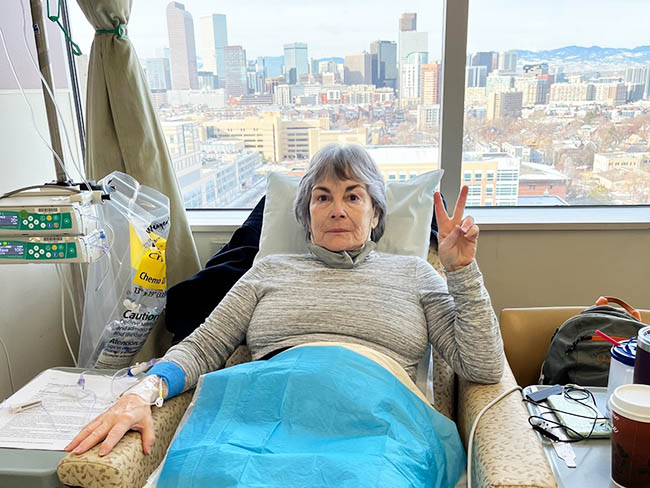
June 22, 2023
Employee joined Connect study after bloodwork results
Help change the future of cancer prevention by joining Connect today.

June 22, 2023
Higher survival rates for our patients with colon cancer
A new study compares Kaiser Permanente members in Southern California to …

June 15, 2023
Stay safe while having fun in the sun
Tips for preventing sunburn and decreasing the risk of skin cancer.
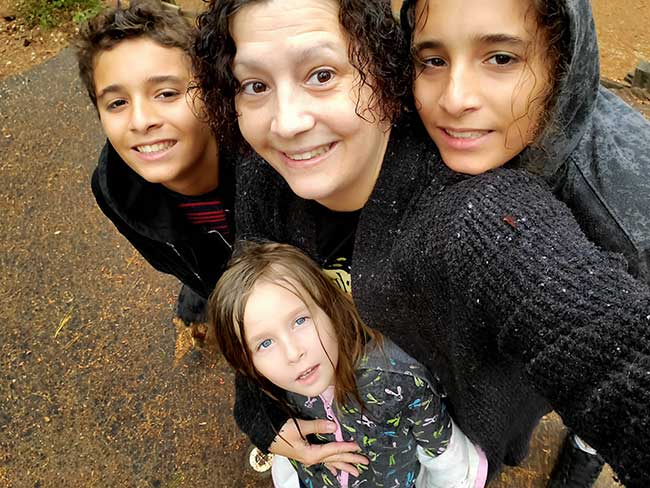
June 14, 2023
Living with stage 4 breast cancer
Thanks to personalized care from a team of skilled doctors, Christina McAmis …
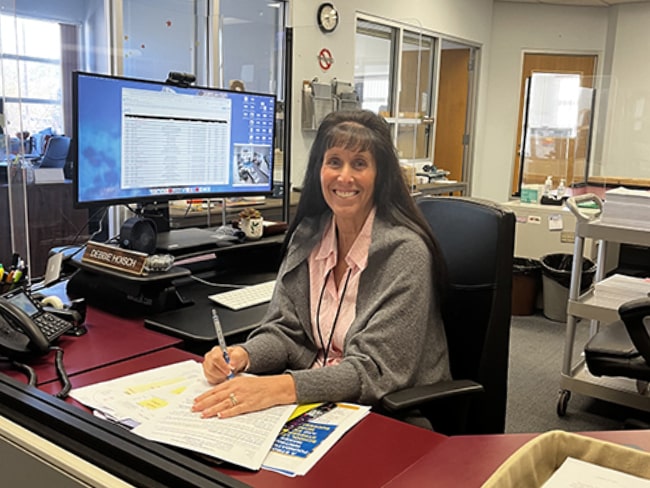
June 2, 2023
Worth knowing the warning signs
Kaiser Permanente member Debbie Hoisch encourages people to know the warning …

May 30, 2023
The healing power of shared cancer experience
Peer mentoring program matches new cancer patients with others who’ve gone …

May 18, 2023
The gold standard of nursing excellence
Kaiser Permanente Baldwin Park Medical Center achieves Magnet status, the …
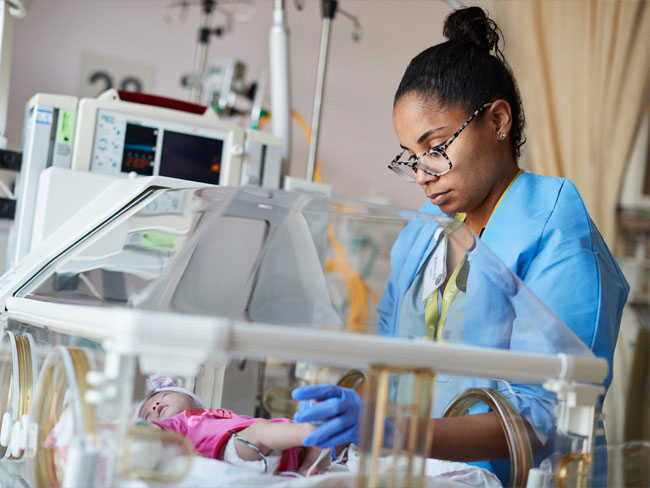
May 8, 2023
Paying tribute to our extraordinary nurses
During National Nurses Week, we thank our remarkable nurses and celebrate …
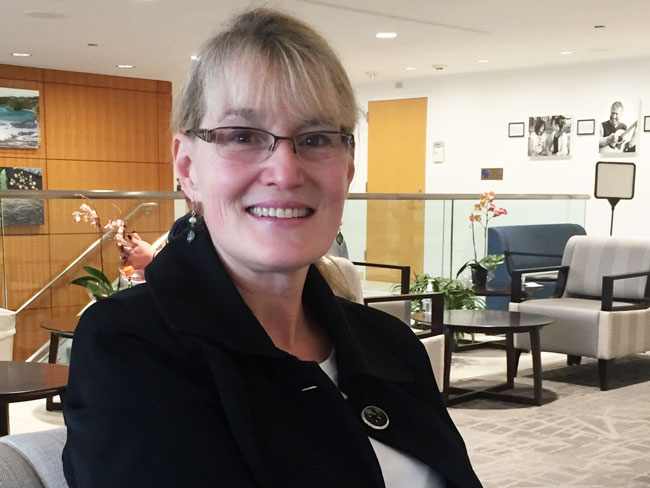
May 4, 2023
An unexpected cancer diagnosis
As a nonsmoker, Betty Schuldt’s stage 4 lung cancer diagnosis was surprising, …

May 2, 2023
Hawaii hospital named one of America’s best stroke centers
Kaiser Permanente Moanalua Medical Center recognized by the Women’s Choice …

April 25, 2023
Hannah Peters, MD, provides essential care to ‘Rosies’
When thousands of women industrial workers, often called “Rosies,” joined …

April 14, 2023
The importance of screening for gestational diabetes
Gestational diabetes poses a significant risk to women of color, particularly …

April 7, 2023
Virtual care helps ease physical pain
Kaiser Permanente offers many high-quality, convenient options to help …
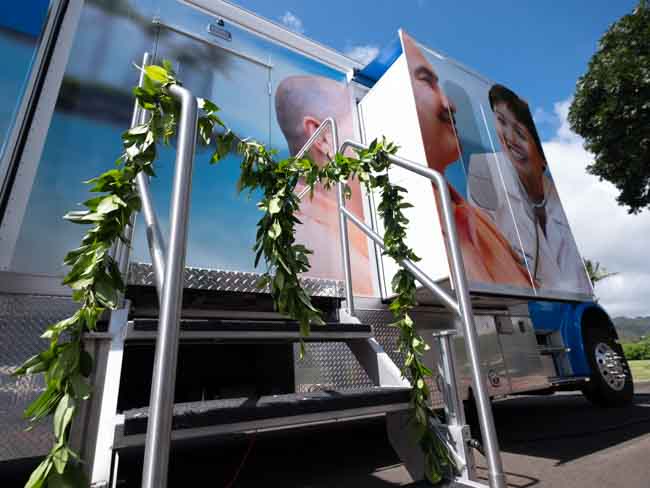
April 7, 2023
Increasing access to health care
Kaiser Permanente launches new mobile health vehicle on Oahu.

March 29, 2023
Volunteering helps create healthier communities
Kaiser Permanente’s partnership with Special Olympics Southern California …

March 24, 2023
Finding hope after a mental health and addiction crisis
Treatment for bipolar disorder and opiate addiction helps a Kaiser Permanente …

March 17, 2023
A call to 'Connect' for cancer research
A new study invites participants in Oregon to help uncover what causes …

March 14, 2023
Colorectal cancer on the rise among younger adults
Learn why early screening is crucial for prevention and treatment.
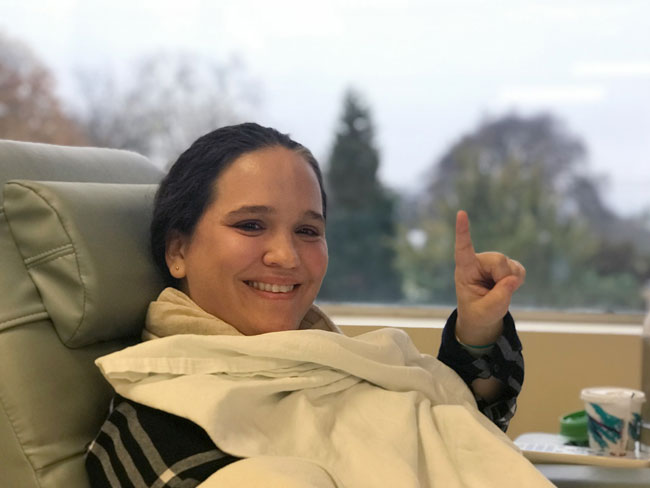
March 8, 2023
Named ‘Best Health Insurance Company' of 2023
A member’s cancer journey, which took her from patient to employee, reflects …

March 6, 2023
Living with long COVID
From avid snowboarder to chronically ill patient. How Kaiser Permanente …
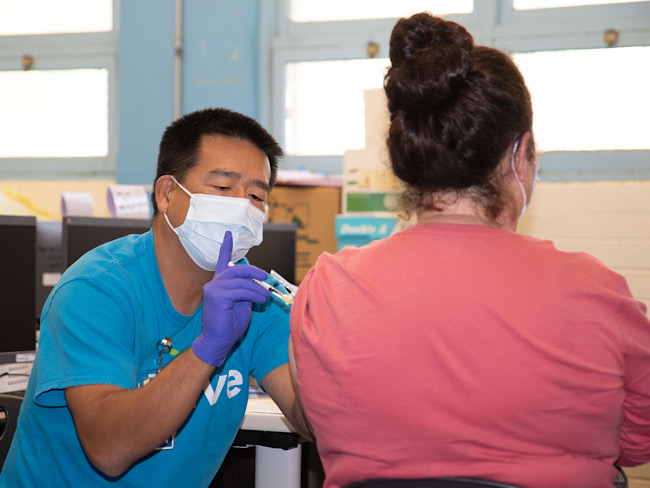
March 6, 2023
Have shots, will travel
Hawaii community vaccination team’s pop-up events with COVID-19 and flu shots.

March 1, 2023
Spring forward: How to prepare for losing an hour of sleep
A sleep expert shares 4 practical tips for coping with the time shift and …